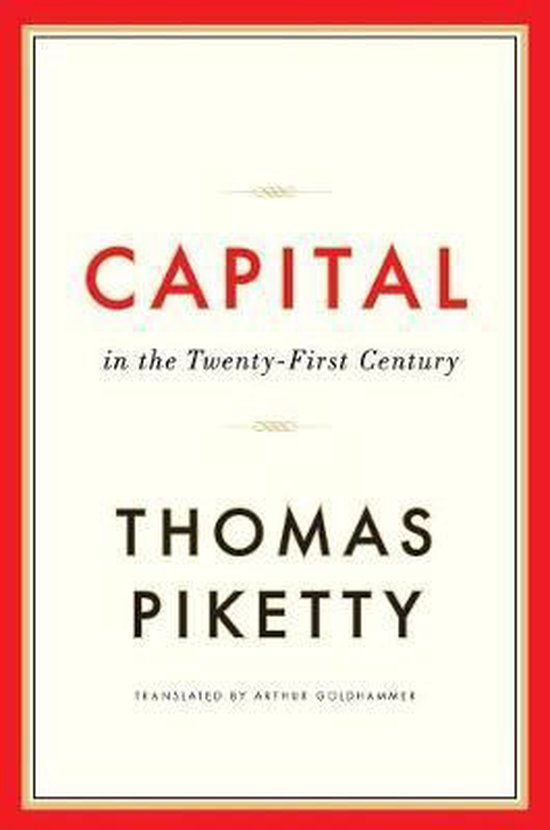De Boeken van Wouter
Capital in the Twenty-First Century
Capital in the Twenty-First Century
Impossible de charger la disponibilité du service de retrait
Gratis verzending vanaf €25
4 boeken bestellen = 3 betalen
Verzending is beschikbaar op maandag en vrijdag
Meestal verzonden binnen 1–4 dagen na bestelling
Titel: Capital in the Twenty-First Century
Schrijver: Thomas Piketty
Bindingswijze: Hardcover
EAN: 9780674430006
Conditie: Redelijk
Let op: Hieronder staat een algemene beschrijving van hoe wij onze conditietypes classificeren. Als u een nauwkeuriger beeld wilt of specifieke vragen heeft, stuur ons dan een bericht en we kijken het graag voor u na.
Conditie-omschrijvingen:
- Als Nieuw: Nauwelijks gebruikssporen, bijna als nieuw.
- Goed: Kan lichte gebruikssporen vertonen, zoals wat verkleuring of een naam op de schutbladen, maar doorgaans geen onderstrepingen of aantekeningen in de tekst.
- Redelijk: Boek in redelijke staat. Kan gebruikssporen vertonen, zoals verkleuring, leesvouwen in de rug, onderstrepingen, aantekeningen, lichte vervuiling aan de randen, ezelsoren of een kromme rug.
- Nieuw: Boek is nieuw.
Beschrijving:
What are the grand dynamics that drive the accumulation and distribution of capital? Questions about the long-term evolution of inequality, the concentration of wealth, and the prospects for economic growth lie at the heart of political economy. But satisfactory answers have been hard to find for lack of adequate data and clear guiding theories. In Capital in the Twenty-First Century, "Thomas Piketty analyzes a unique collection of data from twenty countries, ranging as far back as the eighteenth century, to uncover key economic and social patterns. His findings will transform debate and set the agenda for the next generation of thought about wealth and inequality. Piketty shows that modern economic growth and the diffusion of knowledge have allowed us to avoid inequalities on the apocalyptic scale predicted by Karl Marx. But we have not modified the deep structures of capital and inequality as much as we thought in the optimistic decades following World War II. The main driver of inequality--the tendency of returns on capital to exceed the rate of economic growth--today threatens to generate extreme inequalities that stir discontent and undermine democratic values. But economic trends are not acts of God. Political action has curbed dangerous inequalities in the past, Piketty says, and may do so again.
Share



